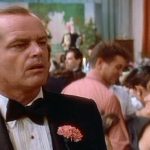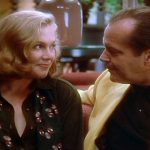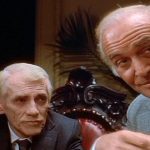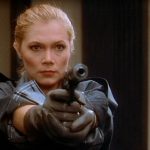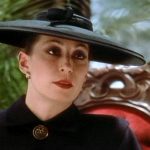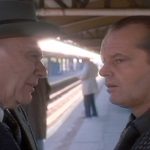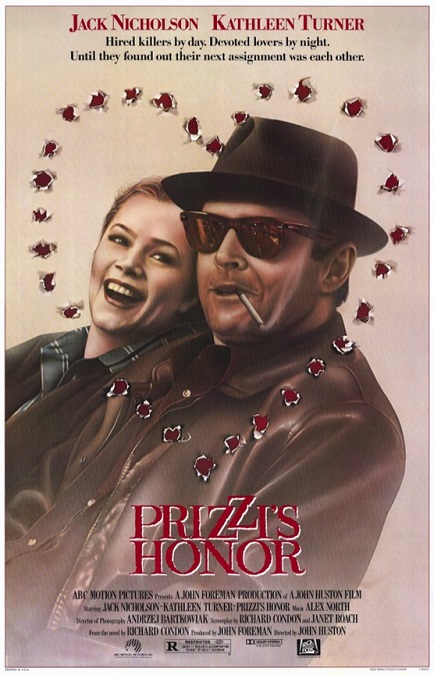
Prizzi’s Honor – 1985
My first thought about Prizzi’s Honor was that Jack Nicholson rarely does comedy. My second thought was that it reminded me, a little, of the 1988 movie Dirty Rotten Scoundrels. It had a similar feel. I have been thinking about the film and trying to decide what genre it falls into. I’m thinking it is a modern black screwball romantic comedy. The comedy is definitely there, but it is almost hard to find. The romance was also present, but it was never allowed to really breathe. The actors all played their parts seriously, for what it was worth, but the feel, the aesthetics, the pacing, and definitely, the score, all pointed to a light-hearted, though devious, romp.
I liked the complicated plot with its many twists and turns, the characters’ motivations, which drove them to go in directions I never quite expected, and the big-name stars. But my problem with the film was the direction. The movie was directed by John Huston, a man known for directing some pretty popular movies like 1941’s The Maltese Falcon , and 1951’s The African Queen. But I’m just not sure if I liked what he did with this one.
It was how he wanted his actors to play caricatures instead of characters. For example, the film was based on a mob family headed by Don Corrado Prizzi, played by William Hickey. He was a walking stereotype with no real personality. He looked almost cartoonish, again really playing into the mob boss stereotype. And he wasn’t the only one. It seemed that every character was created with the stereotype in mind.
The dialogue was sometimes ridiculously hokey with forced phrases like “Yous Guys.” I kept expecting to hear someone say, “Hey! What’s-a-madda you? I break-a-you face!” But the trick is that I think it was all deliberate. Someone had to have told Nicholson to use that over-the-top Brooklyn accent and to keep his upper lip pushed down over his teeth. Someone had to tell Angelica Houston to pronounce the word “long” like “loo-wong.” But the fact that it was intentional just made it worse for me. It was too much and it didn’t work.
True, some of the jokes were mildly amusing in a dark and morbid way, though they were rarely funny. Most of the comedy was stale and forced. The romance between Nicholson, playing mafia hit-man Charley Partanna, and Kathleen Turner, who played the part of Irene Walker, an independent hit-woman, was barely recognizable as actual romance.
Charley sees Irene at a wedding and it is love at first site. Then, when he is told to kill a man who turns out to be Irene’s estranged husband, he ends up wooing her. After a few hours, Irene falls in love with Charlie and the two of them agree to marry. A few more days of flying back and forth between New York and LA, the two drive down to Mexico for a shotgun wedding. The film then follows the two through their rock relationship as they team up for a crime heist.
Matters are complicated even further by Maerose Prizzi, played by Angelica Houston, Charlie’s childhood friend who had always carried a serious torch for him. But in the end, Charlie and Irene are each hired to kill each other. And the film’s final pay-off is when one of them succeeds. I’ll say one thing for this movie. The one aspect of the film that was not a cliché was the plot. It was devious and intricate, and in itself, was enough to keep my interest.
A few other notable actors who rounded out the cast were John Randolph as Angelo Partanna, Charley’s father, Robert Loggia as Eduardo Prizzi, Don Corrado’s son and right hand man, and Lee Richardson as Dominic Prizzi, the Don’s other son, Maerose’s father. The movie was nominated for 7 Academy Awards, including a Best Actor nomination for Nicholson, A Best Supporting Actor nomination for Hickey, and a Best Supporting Actress nomination for Houston, which she won.
I just don’t get it. I’m not saying it was a bad movie, but I just felt like it wasn’t as good as it could have been. And the trouble is that I don’t exactly know what I would have done to make it better. Maybe take out the dry comedy and just make it a dark, or even tragic, romance. Maybe smarten up the dialogue. Maybe give the characters realistic personalities and not just stereotypical ones. Maybe it was clever and innovative for its time, but if that’s the case, it hasn’t aged well.
